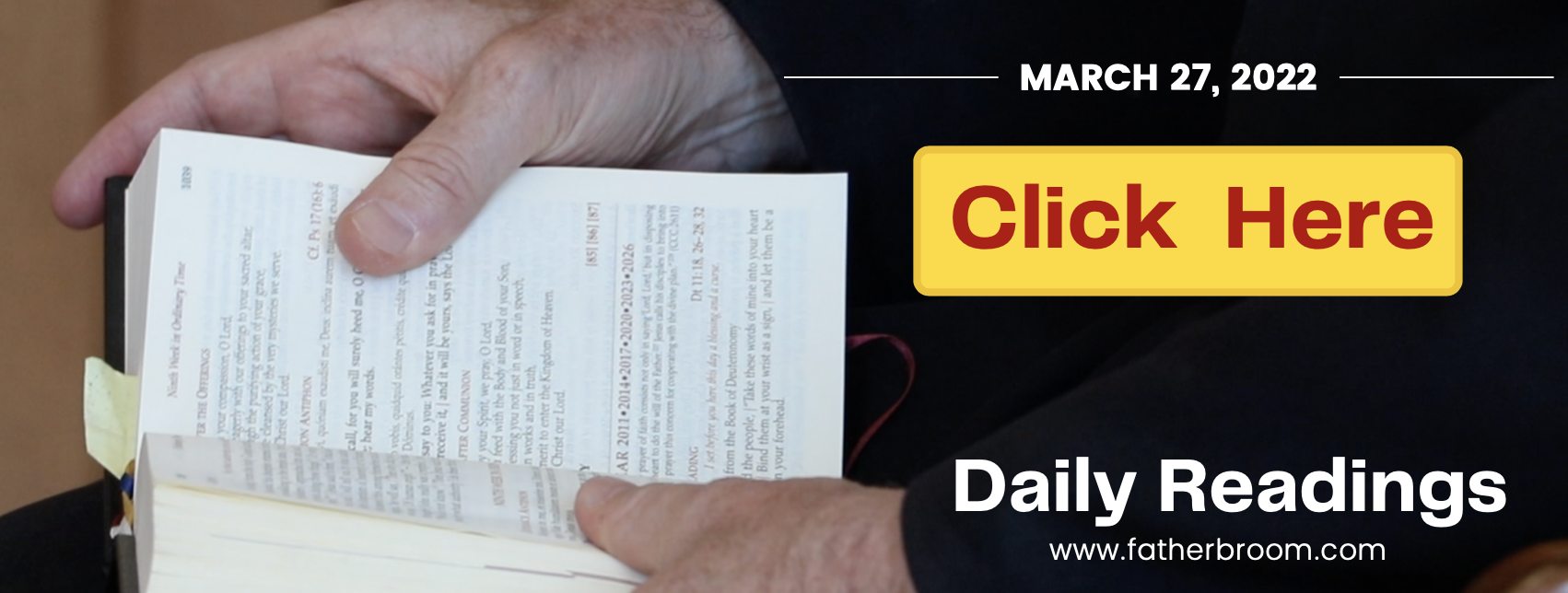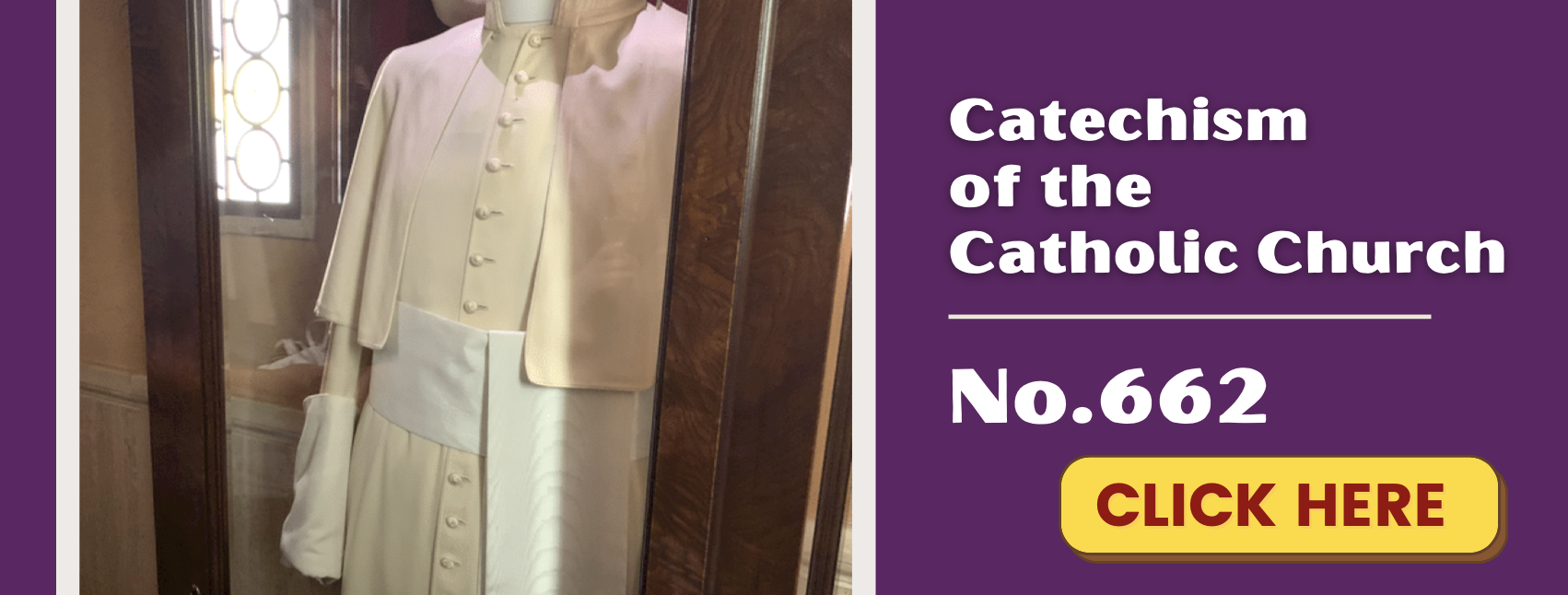Fourth Sunday of Lent



“For greater things you were born.” (Ven. Mother Luisita)
SUNDAY, March 27th Lk. 15,1-3, 11-32 The Parable of the Prodigal Son “Let us celebrate with a feast, because this son of mine was dead, and has come to life again; he was lost, and has been found.”
Each one of us is this prodigal son or daughter. With great thanksgiving may we relish the loving embrace of our Merciful Father in every Confession!
PART ONE OF A TWO PART MEDITATION…
PARABLE OF THE PRODIGAL SON/MERCIFUL FATHER! By Fr. Ed Broom, OMV
Introduction. Possibly the most famous short story ever composed in the history of literature and spirituality is that of the Prodigal Son, which also could be termed the Parable of the Merciful Father.
The author/composer of this Spiritual/Literary Masterpiece came from the lips and Heart of the greatest of all Teachers in the history of the world—the Lord Jesus Christ!
WHERE TO BE FOUND? This Parable taught by Jesus can be found in the Gospel of Luke, also known as The Gospel of Mercy, Chapter 15:11-32. Actually, in this 15th Chapter of Saint Luke can be found three Parables of Mercy. It can also be called The Lost and Found Chapter. The reason for this catchy title is because Jesus offers us three Parables in which something, or someone has been lost and then found: a lost sheep, a lost coin, and most important, a lost son. In common, all were found and returned to their proper place.
PREPARATION TO RECEIVE GOD’S MERCY THROUGH SACRAMENTAL CONFESSION. Since the Council of Vatican II, the Church has strongly encouraged that the Sacraments be prepared for and accompanied by reading and meditating on the Word of God. The Bible, which is truly the Word of God, serves as an excellent means to prepare our mind, heart, and soul to receive the Sacraments. In other words, Word and Sacraments work together as an efficacious team to receive the grace of God abundantly into one’s heart.
This reflection and commentary on the Prodigal Son/Merciful Father will serve as a platform, better yet, as a springboard into the arms of our Merciful, Loving, Compassionate, Kind, Intelligent, and Wise Heavenly Father. This “Best of Fathers” always desires what is best for each and every one of us, in time and for eternity.
POPE SAINT JOHN PAUL II: THE POPE OF MERCY. Pope Saint John Paul II preached and lived the Gospel of Mercy in his life, especially in his 26 years as Holy Father. Not only did he forgive a man who tried to ruthlessly murder him, but also the saintly Pontiff wrote a spiritual masterpiece on the topic of God’s Mercy in his renowned Encyclical Dives In Misericordia—God Rich in Mercy. In this Encyclical the Holy Father explains the essential meaning of the Parable of the Prodigal Son, the Parable of the Merciful Father. If possible, it would be highly advantageous to read this Encyclical, this spiritual gem, so as to go deeper in an Ecclesial reading into the great depths of the Father’s Mercy toward all of humanity, but especially towards you and me!
LUKE 15: 11-31. THE PARABLE OF GOD’S INFINITE MERCY
Read carefully and meditate upon the Parable of Prodigal Son and Merciful Father and beg for the grace from the Holy Spirit and the intercession of Mary, the full of grace and Mother of mercy, to allow the Word of God to touch you in a most powerful way. In the words of the Apostle Saint Paul, the Word of God is sharp and penetrating as a two-edged sword that separates bone from marrow. (cf. Heb 4:12)
COMMENTARY ON THE PARABLE OF THE PRODIGAL SON…
1. THE SON OF THE FATHER. The son of the Father in this Parable represents all of humanity, and each and every one of us individually. We are challenged to meditate and pray over this Parable and beg for the grace to see ourselves in this story, which is really our personal story.
2. GIVE ME THE INHERITANCE. The son cares more for material things, for money and what it can buy, than he does for his Father, much less for any spiritual riches. How easy it is to become blinded by material things, by the erroneous philosophy of Materialism!
3. FREEDOM. Here we encounter a key element of God’s love for the human person in that God has endowed all of us with what we term FREE WILL. All of us are given freedom to make choices constantly in our lives.
4. RISK OF FREEDOM. Of course having freedom always involves a true risk of not using freedom for its proper end and purpose. In other words, we can choose to abuse rather than use our freedom. God respects our free choices, our free decisions, and our free actions.
5. LOVE. The reason for the reality of freedom is simply that God wants to be loved by all. Without freedom, we could never truly love God; we would simply be robots—a robot acts mechanically and without love!
6. SON ABUSES HIS FREEDOM AND WEALTH. And it happened! Once the younger son was given his freedom and his wealth, whatever and however much that may have been, he wasted it. How often have we wasted our time, our talents, our efforts, our money and possessions on superficial and transitory, if not sinful, things?
7. WINE, WOMEN, AND THE FAST LIFE. The son gave in to his lower passions and chose the fast life indulging in wine, women, eating—the life of sensual pleasure. He allowed his lower passions to dominate his higher faculties of reason and will. How often have we given into the same—allowing our animal and base nature to take total control of us—our thoughts, our decisions, our actions, our lives??? Make an effort to identify your own life with that of the Prodigal Son, to see some similarities!
8. LOST IT ALL! Most likely in a relatively short time, the partying and sensual young man lost it all. Friends, he really never had any in this place from the start! This being the case, he had to find some place, some work to at least provide for meager meals so that he would not die of hunger.
9. TENDING PIGS: DEGRADATION TO THE MAX! Of all places and jobs, the only one he was able to secure was that of tending pigs. For Jews, the pig was considered an impure animal, so much so that the kosher/dietary laws prohibited them from eating the meat of pork.
10. SIN: DEGRADES THE HUMAN PERSON! God has created us in His image and likeness. Through the Sacrament of Baptism we are transformed into sons and daughters of God and living temples of the Blessed Trinity. We are called to recognize both our dignity as sons and daughters of God, as well as our destiny—we are citizens of Heaven, pilgrims on the way to our heavenly home. Committing sin mars, blurs, defaces the image of God in our soul. Still more, it could prevent us from reaching our final destiny—HEAVEN!
11. LEVELS OF DEGRADATION. This now poor young man experiences poverty on various levels due to his becoming a slave to sin.
1) PHYSICAL LOSS. On a physical level, he certainly has lost his physique—he has lost much weight and muscle that he had before leaving home.
2) APPEARANCE—No physical attractiveness! See him: long beard, unkempt and disheveled hair, covered in filth, rags for clothes—whereas, when he left home, he walked down the street a fine and well-kept figure in elegant and costly clothes.
3) FROM ERECT POSTURE TO SLOUCHING. Even his bodily posture has changed—from standing erect, straight, and proud, now his posture is slovenly, crouched, almost a hunch-back.
4) SLAVE OF SIN. But worst of all, the young man has become a slave of all that is opposed to what is good, pure, and noble. In a word, he has become a slave of his lower passions, he has become a slave of sin!
5) SADNESS. Once he experienced peace and joy, when he lived at home with family and friends; now he experiences an overriding gloom and sadness. Life has lost meaning and purpose for him!
This is the first part of the meditation of the Parable of the Prodigal Son. You are challenged to enter into the very depths of this Parable, with the father and son—the Prodigal Son. Beg for the grace to identify your own life with this story. Beg also for the grace to contemplate humanity in this light.
Final thought from the editor:
Questions for reflection:
1) Looking back over your life now, what do you wish you would you have done differently? This is the effect of original sin, our fallen nature, our darkened intellect and weakened will.
2) Looking at your life now, what has changed? What graces and insights have you been blessed with through a life of prayer, fasting, and almsgiving?
3) Now give profuse Thanksgiving to God – the Father, Son, and Holy Spirit! And to our Blessed Mother Mary who never fails to intercede for us in all our needs and concerns!